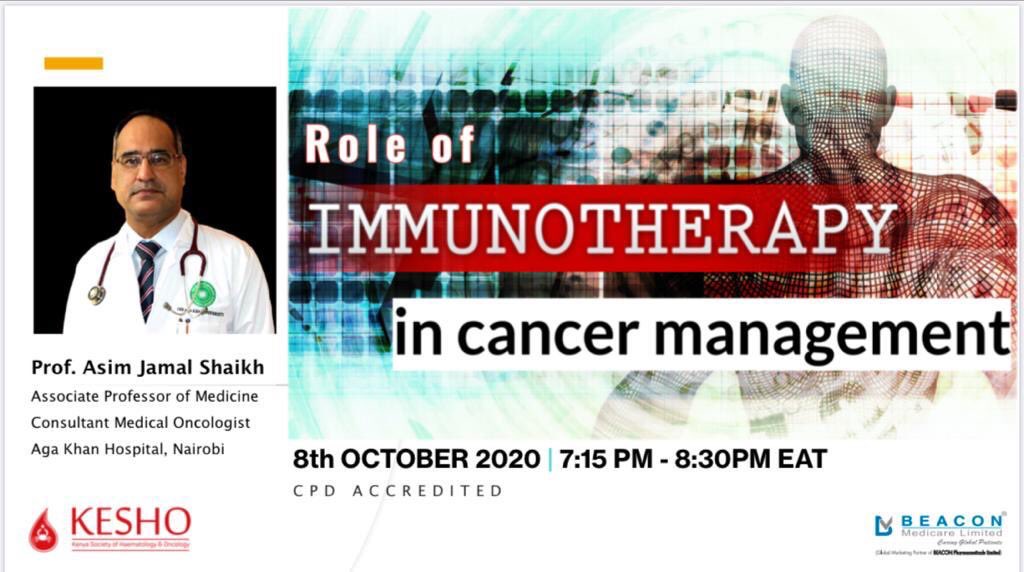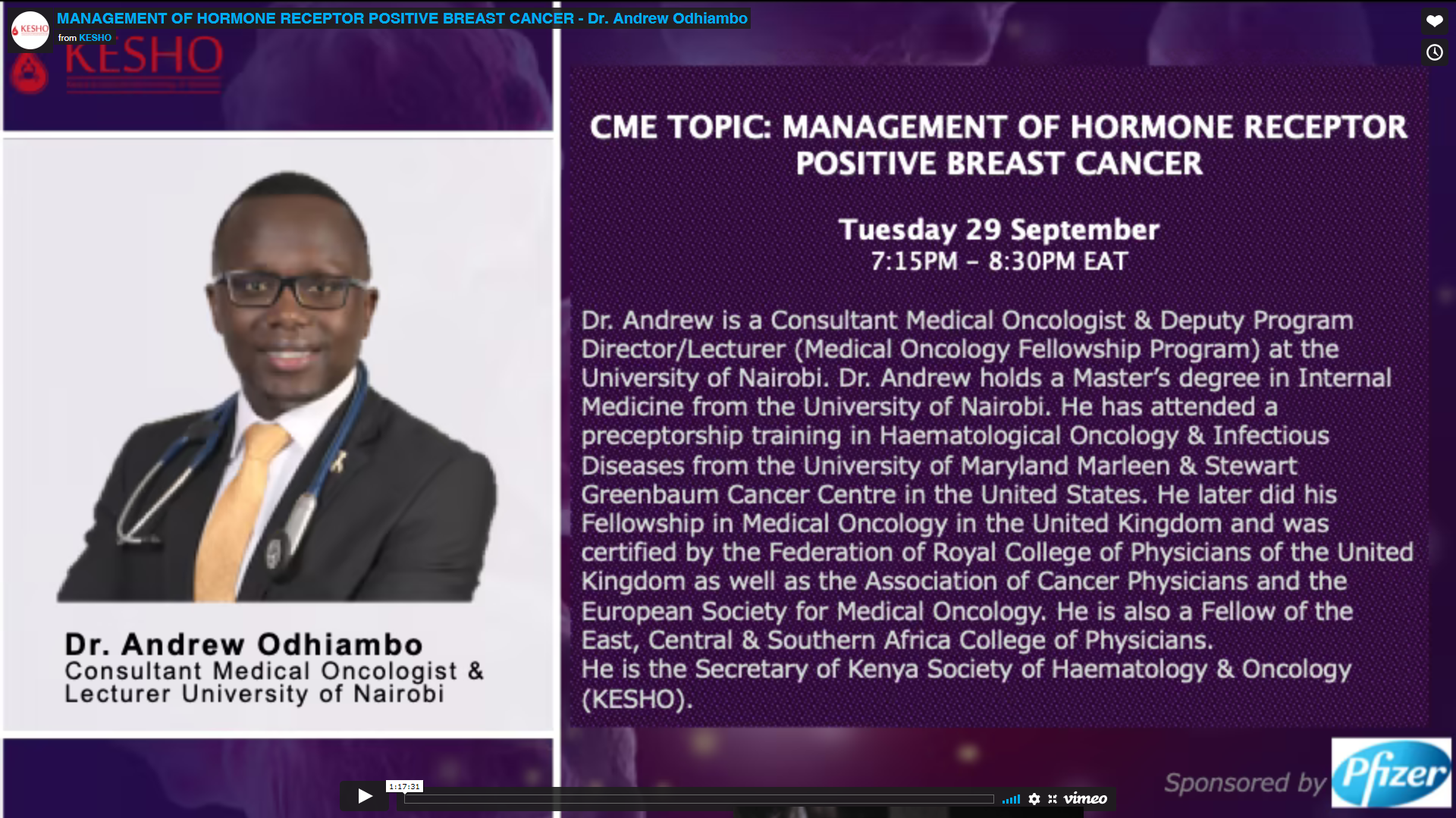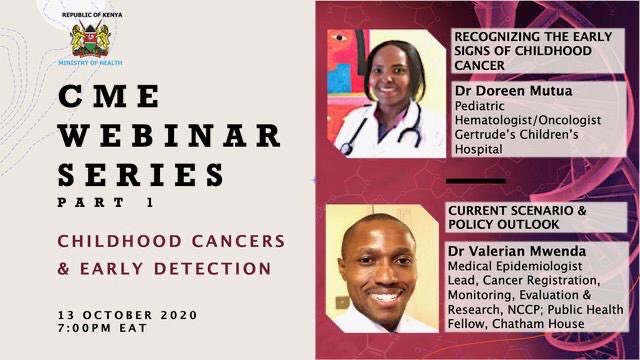
- This event has passed.
The Role of Immunotherapy in Cancer Management
Event Navigation

Moderator: Dr. Miriam Mutebi
Sponsor: Beacon
Presenters:
- Prof. Asim Jamal Shaikh, Associate professor of Medicine, Consultant Medical Oncologist, Aga Khan Hospital, Nairobi.
Immunotherapy is a type of cancer treatment that boosts the body’s natural defenses to fight cancer cells. It uses substances made by the body or in a laboratory to improve how your immune system works to find and destroy cancer cells. Traditional therapies such as surgery, radiation, and cytotoxic/targeted therapy target tumor cells, while immunotherapy harnesses the body’s immune system to fight diseases. Anti-tumor immunotherapy includes cancer vaccines that educate T cells to better recognize and kill the pre-existing tumor. Adoptive immunotherapy activates and increases T cell numbers to better kill tumor cells. Immunomodulation uses drugs or antibodies to either increase stimulation or to overcome immune inhibition. Many tumors escape the immune response by creating an immunosuppressive microenvironment that prevents an effective anti-tumor response, mainly through the involvement of the immune checkpoints located in the central or peripheral regions. The immune checkpoints PD-L1 binds to PD-1 and inhibits T cell killing of tumor cell, therefore, blocking PD-L1 or PD-1 allows T cell killing of tumor cells, while CTLA4 regulate the early phase of activation of naïve and memory T cells in response to T cell receptor (TCR) stimulation by peptides presented by MHC ligands expressed by antigen-presenting and processing cells. Its upregulation prevents normal T cell activation. Several checkpoint inhibitors with FDA approval are in clinical use and have proven to be highly effective in the treatment of relapsed, progressive solid cancers, with relatively mild but distinct safety profiles. Some immune checkpoint inhibitors available in Kenya, are quite costly, and hence National Hospital Insurance Fund (NHIF) is too little to cover for this treatment. Aga Khan is building capacity for PD-L1 analysis, an immunohistochemistry test, in addition to next-generation sequencing. More data is required on the safety of immunotherapy and its use on immunocompromised individuals e.g. HIV, and those with autoimmune diseases, Since several clinical trials, are in progress; more new indications are likely to emerge.
Webinar Recording

